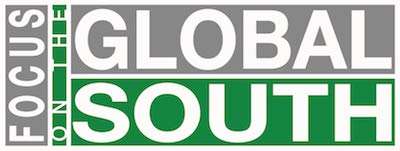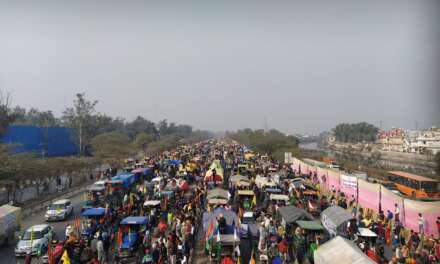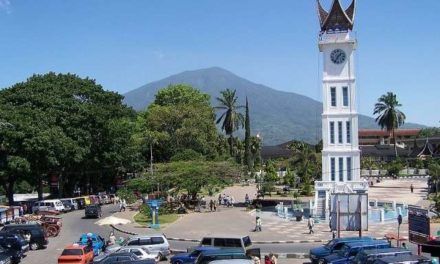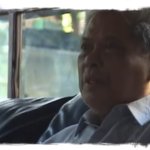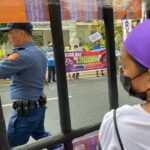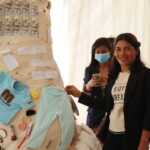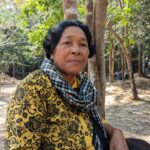Final Report of the International Civil Society and Parliamentary Peace Mission to Lebanon
September 10, 2006
Introduction
At the height of
the Israeli bombardment of Lebanon, a call came from civil society
groups in that country asking the international community to send peace
delegations to bear witness to the ongoing destruction of a nation
and demonstrate solidarity with the Lebanese people in their hour
of need.
Having worked with many of these groups to hold an international peace conference in Beirutin
2004, Focus on the Global South took the initiative in putting together
such a delegation. It took about ten days to assemble the delegation.
By the end of the first week of August, a 12-person Civil
Society-Parliamentary Peace Mission was ready to go. Members of the
mission came from a diverse spectrum, both in terms of background and
geographically. The mission included two farmers, one labor leader, two
members of parliament, one journalist, two university professors, and
three civil society activists. They came from India,
the Philippines, Norway, France, Brazil, and Spain. Everyone was self-funded.
Members
of the mission were:
Seema Mustafa, Resident Editor, Asian Age
Mujiv Hataman, Member of Parliament, Anak Mindanao,
Philippines
Walden Bello, Focus on the Global South, Philippines
Kjeld Jakobsen, CUT (Central Union Federation), Brazil and Hemispheric
Social Alliance
Gerard Durand, Confederation Paysanne, France, La Via Campesina
Kari Kobberoed Brustad, Norsk Bonde -Og Smabrukarlag, Norway, La Via
Campesina
Mohammed Salim, Member of Parliament, Communist Party of India
(Marxist), India
Herbert Docena, Focus on the Global South, Philippines
Feroze Mithiborwala, Forum Against War and Terror, Mumbai
Kamal Chenoy, All India Peace and Solidarity Organisation, Coalition
for Nuclear Disarmament and Peace (CNDP), India
Vijaya Chauhan, Rashtra Seva Dal, India (Youth Organization)
German Guillot, interpreter (French/Spanish/English/Arabic)
Their tasks were straightforward:
– to witness and document the war crimes and abuses being perpetrated on the
Lebanese people;
– to show solidarity with the Lebanese;
– to discuss and work out ways in which the international community could
assist in countering the Israeli aggression and reconstruction;
– to investigate the plight of migrant workers caught up in the war.
On August 12, the mission entered Northern Lebanon at the Dabboussiyeh
Crossing with Syria.
In the next few days, they witnessed the destruction caused by
Israeli airstrikes in Northern Lebanon, met with a broad range of political
groups and civil society organizations, toured bombed out areas of South
Beirut that were still being subjected to Israeli air and naval strikes,
visited the wounded at Beirut University General Hospital, talked to
refugees from South Lebanon, met with Lebanese parliamentarians and
President Emile Lahoud, and observed the first two days of the ceasefire.
The mission members announced their key findings and recommendations at a press
conference in Beirut
on August 14, where they read a statement that was collectively drafted, fully
discussed, and unanimously approved by everyone.
The
mission left Lebanon
on August 15.
A War against Civilians
The
wounds of war were evident shortly after we crossed the Syria-Lebanon border at
11.30 a.m. on August 12, 2006. At Haisa, about three kilometres from the
Dabboussiyeh border crossing we came across the ruins of a bridge hit by
Israeli war planes just the day before. Villagers told us that 12 persons were
killed and 10 wounded, all civilians.
Twenty
minutes later, at a place called Abu Shamra, we came across the remains of a
gasoline station and another bridge, the targets of an Israeli air strike just
eight hours earlier. At three other places, Matfoun, Halat and very close to
the famous Casino du Liban near Junieh, we had to take detours around bridges
and vehicles destroyed by Israeli attacks. These are locations right to the
very north of Lebanon where
the Hezbollah—the Lebanese resistance movement that Israel claimed
to be fighting—has marginal presence. The fresh instances of destruction
brought home to us one of the key features of the Israeli offensive: its
deliberate targeting of non military infrastructure to raise the costs of the
war for the civilian population.
This
was the pattern through out Lebanon.
The main Syria-Beirut highway had been complete destroyed by Israeli fighter
planes. Bridges linking roads and highways had been bombed out of operation.
Gas stations were targeted and destroyed with Lebanon being left with little
fuel. At the Syria-north Lebanon
border, refugees were fleeing, terrified and apprehensive about their future in
the war torn country. "They are fighting us, not the military," a
young woman with four children pointed out quietly.
In
Beirut the
suburbs in the south populated mainly by Shias were almost completely
destroyed. For 32 days Israeli planes bombed these areas continuously. The
hotels, parks, schools in central Beirut have
been turned into refugee camps for the one million displaced persons from south
Beirut and south Lebanon. Villages in the south had
been destroyed beyond recognition with the refugees in Beirut speaking of the death of relatives,
the destruction of homes and civilian infrastructure including roads, power
stations, bridges and schools. It is clear that the Israelis have been
targeting the civilians who returned to their villages after the 32 day war as
"die-hard Hezbollah supporters." Mohammad who had little to do with the
Hezbollah but drove a taxi in Beirut
said his eldest "will join the resistance, of course."
The
sound of massive blasts punctuated the hours of every single day. The Israelis
stepped up the bombing in the hours preceding the cessation of hostilities. Two
hours after our visit to the Haret Hreik neighborhood in south Beirut on August 13, Israeli bombs hit the
area, and we learned later that they wiped out seven families who had returned
to the rubble that was once their homes in an effort to salvage some of their
belongings. We were really lucky to have left the area before the bombs fell.
In south Lebanon
pitched battles were reported between the Hezbollah and the Israelis who
suffered heavy military casualties as well. A day before the cessation of hostilities
Hezbollah leaders informed us that 24 Israeli tanks and armoured vehicles had
been destroyed by their fighters in the south of Lebanon. At 617 am on August 14,
less than two hours before the ceasefire would take effect, we were awakened by
Israeli warplanes bombing south Beirut yet again.
The
cessation of hostilities was met with silence in Beirut. It was only 12
hours later, just
after 8 pm at night, that people rushed to the television sets to hear
Hezbollah leader Nasrallah speak. He appeared on al Manar television, a
television channel dedicated to Hezbollah activities and trusted by him
and his
men. The seven storey building that housed the television channel in
south Beirut had been amongst the first buildings to be bombed
by Israel.
Nasrallah announced 'jihad al binnah' (the jihad of reconstruction) and
asked
the people to return to their homes. He said that the Hezbollah cadres
would be
out to join them in the reconstruction process from 8 a.m. the next
morning,
and those who had suffered would be paid compensation. His words had an
electrifying effect, and within hours the refugees in Beirut had
climbed into their cars, vans,
buses to begin the journey through the rubble that was once the
highway, to
their homes. The roads were jammed, with cars taking two hours to
travel as
little as ten kilometres.
At
8 am sharp on April 15, the reconstruction started. In Beirut we saw the Hezbollah cadres with guns,
bull dozers and fire extinguishers as they joined the civilians to clear the
rubble and begin the long and hard task of bringing some semblance of normalcy
to their lives. They all agreed that it would take months, if not years, but
the thought did not deter the hundreds of men and women who came out on the
streets to participate in the reconstruction. Within hours the Hezbollah cadres
started handing out money to the victims to rent accommodations until their
houses were rebuilt, and to rebuild their destroyed homes.
In
all this time there was little sign of the Lebanese government that had kept out
of the war, and was not visible while we were in Beirut in the reconstruction
and rehabilitation work. Subsequent
reports from Lebanon
confirmed that the Hezbollah had stolen a decided march over the government in Lebanon with
the civilians turning to the resistance group not just in war, but in peace as
well. This was not surprising, given the
weakness of the Lebanese state, a condition that was attributed by President
Emile Lahoud partly to Washington's massive
support for Israel.
The Reasons for the War and its
Political Consequences
The
34 day Israel- Lebanon War was supposedly sparked off by the 'kidnapping' of
two Israeli soldiers by the Hezbollah forces who crossed over the border to
attack the Israeli troops. In the backdrop of earlier events in this area, this
explanation for the massive Israeli attack that followed was not credible. Hezbollah, a powerful military and political
force had through its guerrilla attacks forced Israel
out of almost all of South Lebanon in 2000.
But Israel
refused to vacate a 30 square kilometer area around the Shebaa Farms. Thus
skirmishes between the Hezbollah and Israeli forces continued. As a Pentagon
consultant told investigative journalist Seymour Hersh, prior to most recent
incident, "there had…been cross border incidents involving Israel and
Hezbollah, in both directions, for some time." [Seymour
Hersh, "Watching Lebanon,"
New Yorker, August 21, 2006, pp. 29-30]. Some of these skirmishes
involved captures of combatants for prisoner exchange purposes. Thus, the unleashing of a full fledged land,
air and sea assault by the Israelis within days of the Hezbollah's capture of
the two soldiers indicated a preplanned attack motivated not by the release of
its POWs but by the strategic goal of destroying Hezbollah. A central part of the strategy was to teach
the Lebanese not to support or tolerate the Hezbollah by attacking the
country's infrastructure. This was, in
the very real sense of the word, a Roman-style "exemplary war" designed to
teach the Hezbollah, Lebanon,
and the whole Arab world a lesson.
The
misrepresentation of the Hezbollah action is in keeping with the Western stand
on West Asia, and Israeli occupation and
aggression in particular. From 1948 onwards despite the history of Zionist
terrorism and the murder of the UN negotiator Count Bernadotte along with
others in the Zionist terror group Irgun during the bombing of the King David
hotel, the West has generally turned a blind eye to Israeli state terrorism and
violations of international law. This is shown by the West's ignoring of
Security Council resolutions 242 and 338 which mandate a sovereign Palestinian
state with Israel
going back to its pre-June 1967 borders. The West has also striven to maintain
a regional balance of power favouring Israel. The US facilitated
the Israeli nuclear programme and provided it delivery vehicles for its nuclear
warheads, ignoring the revelations of nuclear whistleblower Mordecai Vanunu. It
has also used Israel
to punish Arab states that worked against US interests.
The
second Israeli-Lebanese war was a consequence of this. The US and Israel saw
the growth and consolidation of Hezbollah, which in turn was supported by Syria
and Iran as a threat both to Israel and US plans to isolate and possibly
overthrow the existing regimes in Iran and Syria. With the breakup of the
Palestinian areas, which were physically separated with Israeli military posts
in between, and no airport for independent communication with the outside
world, the Palestinians in the Gaza strip and
the West Bank were cut off from each other.
The massive security wall built despite the International Court of Justice's
opinion, further divided Palestinian towns, and made the resumption of armed
struggle from these isolated enclaves against the Israelis extremely difficult
and hazardous. Thus in the absence of a Palestinian armed resistance, Hezbollah
remained the only military force capable of facing the Israeli military force
as it had repeatedly demonstrated from the mid-1980s onwards, and was along
with the Amal militia a major ally of Syria and Iran. Thus the Israelis'
targeting of the National Resistance led by Hezbollah that also came to include
the Amal and the Lebanese Communist Party [LCP]. This formation was supported from outside by,
among others, the leading Maronite Christian party led by General Michel Aoun.
The
Israeli government's efforts to isolate the Hezbollah were backed by the Bush
administration, which had been "agitating for some time to find a reason
for a preemptive blow against Hezbollah," according to a Pentagon consultant
interviewed by Seymour Hersh. He added,
'It was our intent to have Hezbollah diminished, and now we have someone else
doing it." [Seymour Hersh, "Watching Lebanon," New
Yorker, August 21, 2006, pp. 29-30]
Destruction of the Hezbollah was perhaps even more vital for the United States than Israel,
claims Henry Barkey, chairman of Lehigh
University's
International Relations Department and a former member of the US State
Department's policy planning staff. In a recent article, Barkey claims that
while Israel can live with a
Hezbollah driven north of the Litani River, the US would not. The key reason has to
do with the "Hizbullah model." According to Barkey, "it
represents the nightmarish metamorphosis of a well supplied and trained
militia. If it can work in Lebanon,
the model can be emulated elsewhere around the world — Hizbullah is far more
sophisticated and entrenched than Al Qaeda. It is impossible to defeat it
without inflicting civilian casualties. Therein lies Hizbullah's strength: it
calculates that the outside world will relent in the face of civilian
casualties." [Daily Star (Beirut),
August 13, 2006, p. 1]
The
socio-political basis of the Resistance includes not just the Hezbollah or the
Shia community but is supported by the communists and the dominant
Maronites. This makes a mockery of the
claim that the Hezbollah is a terrorist organization, even though it has two
ministers in the Lebanese government, along with Amal and the Maronites who are
also represented by President Emile Lehoud. The fact that 12 communists died in
the 34 day war starkly demonstrates that this alliance was firm and secular,
exposing the lie that Hezbollah is a terrorist organization. The process of
listing of terrorist organizations by the West is known to be politically
partisan, and the targeting of Hezbollah is no exception.
Though
France, Russia and China
wanted a quick cessation of the war, the US with its veto power
resisted
adamantly. It obviously thought Israel
would prevail, facilitating its attempt at regime change in Iran and
Syria. The notorious statement by US Secretary of State Condoleeza
Rice, at the
height of the war, that the region was witnessing the "birth pangs of a
new
Middle East," revealed clearly what the US intentions were and what the
war
was about. The two Israeli POWs, for which the Resistance wanted a
prisoner
exchange for three Lebanese prisoners, was just a pretext. The US
envisaged a new Middle East where all regimes
would be like the pro-US troika of Saudi Arabia,
Egypt and Jordan, which would accept the regional hegemony
of Israel
and would not develop nuclear power to the extent that it might create
the
scientific basis of future nuclear weaponisation. The proposed "lesson"
to
Hezbollah and Lebanon, which
was also meant also for Iran
and Syria, was to be an
object lesson in US-Israeli hegemony, where policies ranging from
virtual
denial of Palestinian rights through silence or lack of demonstrative
action,
to unrestrained neo-liberal economic reforms as mandated by the US and
the
IMF-World Bank-WTO troika were to be mandatory. This is the US
neo-conservative vision as enunciated by Condoleeza Rice.
The
pro-US Arab troika played ball during the first part of the war. But as the
Lebanese Resistance led by Hezbollah continued to fight fiercely, not
succumbing to superior Israeli firepower and the relentless air pounding by the
unchallenged Israeli air force, the Arab
street rose in support of the Resistance. This
forced the Arab governments to recognize the likely Resistance victory and
change tack. The Saudi Grand Mufti who had issued a fatwa against Hezbollah was
forced to retract. The Egyptians also praised the resistance and called for an
end to the war. Prominent Jordanian and Kuwaiti intellectuals praised the
Hezbollah and argued that there was 'no longer an invincible army, an immune
state,' a clear refutation of the long standing theory of Israeli
invincibility.
Nullification
of the victory of the National Resistance led by Hezbollah was one of the key
objectives of the US-supported United Nations Security Council Resolution 1701.
It targeted Hezbollah as the aggressor, called for its disarmament and an
additional 15,000 man UN force to supplement the 15,000 Lebanese troops to
patrol the Israeli-Lebanon border. There were no strictures against the
Israelis who had willfully killed 4 UN peacekeepers and injured another, an
Indian. There was not even a formal ceasefire, only a 'cessation of
hostilities.' The right of the Israelis to "self defence" was also recognized
which led to an Israeli commando attack a few days later, in clear violation of
the UN resolution.
Major
changes have occurred in the Arab street, which have hailed the Resistance
victory as unprecedented and smashing the aura of US-Israeli invincibility.
Posters and banners of Hassan Nasrallah and the Hezbollah sprung up throughout
the Arab world. Posters showing Nasrallah with the local leader [like President
Bashar Assad in Syria]
and other leaders like the martyred Sheik Yassin [of Hamas] mushroomed.
Citizens in Damascus
whom we met on 16-17 August, were ecstatic over the Hezbollah victory. On 16th
August, President Assad made a strong speech calling upon pro-US Arab states to
rethink their strategy, and for the Arab street to rise and force their leaders
to change their policies to nationalist, pro-Palestinian ones following the
Resistance.
After
the 14th August stopping of hostilities, there was much criticism in Israel of
Prime Minister Ehud Olmert and Defence Minister Emir Peretz, and the Chief of
the Israeli Defence Forces [IDF] Dan Halutz. Public approval ratings of Olmert
fell to 40% and of Peretz to 28%. Halutz was publicly derided for selling off
his shares just the day before the war broke out. The IDF's military tactics,
including its over-reliance on air power were widely debated. As the extent of
the military defeat sinks in, there may be further upheavals in Israeli
politics.
The
34 day Israeli-Lebanese war that started on 12 July, had results and
repercussions that Israel, the
US and its allies including
those in West Asia were completely taken
unawares by. It was a monumental setback. As the Israeli Foreign Minister
conceded, no force could disarm Hezbollah. The Arab street is at fever pitch,
and US-Israeli action against Iran
and Syria would lead to
popular pressure on Arab governments not to back the US and its allies. The 34 days of
resolute struggle by the Lebanese Resistance and its victory against the much
feared military Israeli machine may well prove a harbinger or profound
political changes in the region in days to come. It may, as Arabs earlier
skeptical of the Resistance have now predicted, lead to a 'new Middle East,' one completely different to that predicted
by Condoleeza Rice–being instead one that is nationalist, self-reliant and
assertive of Arab and Palestinian rights.
One
worrisome outcome of this war could be a change in Israeli military
strategy. With its conventional warfare
capability now nullified by popularly supported resistance guerrilla resistance
movements like Hezbollah, Israel may now be tempted to threaten to resort to
the use of battlefield nuclear explosives, if not mega-nuclear weapons, in
future wars to dissuade Arab attempts to support the Palestinian struggle and
rectify territorial injustices. Threat
can easily result in force. It is well
known that Israel
has nuclear weapons. Being the only
government with nuclear weapons in the Middle East, it is Israel, not Iran, that is the area's nuclear
destabilizer.
Migrant Workers: the other Victims
of the War
Among
the victims of the war were not only the Lebanese people but also migrant
workers in Lebanon. One of the workers we interviewed, Miramar
Flores, a Filipina, exemplified the plight of the this work force. Miramar
Flores was confined to a hospital with broken bones after she jumped from her
employer's second floor balcony in an effort to escape Israeli bombs after her
employer locked her in. As she tried to
make up her mind whether to stay on under the Israeli bombardment or to flee,
it may well have occurred to her that it was a choice between death and death.
She chose to jump. A great number Filipino workers in Lebanon are
treated like slaves. In 2004 six Filipinos working in Lebanese households died
under "mysterious" circumstances. In 2000, the last year when a
database was compiled by the Lebanese Pastoral Committee for Afro-Asian Migrant
workers, there were over 400 reported cases of physical and sexual abuse of
migrant workers, half of the victims being Filipinos. Helen Dabu who is with
the Kanlungan Center Foundation, an organisation that has been dealing directly
with victims of abuse from Lebanon and elsewhere, said most complaints of this
kind are received from West Asia. The cases outnumber those reported from Hong Kong, Singapore
or Malaysia
where the complaints most often involve contract violations rather than rape or
maltreatment. Dabu's assessment was supported by Philippine labor attache Ma.
Glenda Manalo who said that this view was shared by many other diplomats working
in the region.
One
disconcerting finding of the mission was that whereas workers signed
contracts
in the Philippines
stipulating a monthly pay of US$200 a month, most of those we
interviewed were
actually receiving only US$150 from their employers. It is
suspected that employment agencies in Lebanon and the Philippines, in
collusion with some
Philippine government agencies, are profiting immensely from this
systematic
violation of contract.
Lebanon is the tenth top destination of
Filipino workers abroad. Philippine ambassador to Lebanon Francis Bichara said
that the exact figure was difficult to assess because many were smuggled in but
research done by the organization Kanlungan indicated that the figure could be
as high as 50,000. Filipino workers started going to Lebanon since 1978 but the numbers
have increased, with the last year registering the entry of as many as 14,000
workers. Many Filipinas fled Lebanon
to escape the war. Ironically, however, the war gave others the excuse to free
themselves from their abusive masters with many interviewed by the delegation
recounting horrific stories of abuse, low pay and inhuman living
conditions. We were told that similar
conditions afflicted Sri Lankan domestic workers, who are said to be less vocal
in resisting abuse than Filipinas.
It
must be pointed out, however, that not all Lebanese employers abuse migrant
workers. There are said to be many
decent employers. The Hezbollah, who are
part of the government, are said to be the most sympathetic to the plight of
the migrant workers. This would not be
surprising since few in the lower-class Shiite community that is the base of
the Hezbollah can afford foreign domestic help.
Annex 1: Statement and Recommendations
(The following statement and recommendations were
collectively drafted, fully discussed, and unanimously approved by all members
of the delegation and read at a press conference in Beirut on August 14, 2006.)
We, the members of the international peace delegation
comprising India, Philippines, Brazil,
Norway, France, and Spain
express our solidarity with the people of Lebanon in their resistance to
Israeli aggression.
The victory of the Lebanese resistance over Israel has
inspired the peoples of the world who see in this a reassertion of people's
power. The resistance has for the first time broken the myth of Israeli
invincibility, its supposed military and political superiority over the
region. This victory is a defeat for the US-Israeli designs for a "New
Middle East" that is another term for Zionist expansionism and US hegemony
that are integral parts of the global imperialist project.
The courageous Lebanese National Resistance led by the
Hizbollah and its secretary general Hasan Nasrallah has led to this historic
victory. The unity of the Lebanese people across religions and classes,
and the resistance of the civil society have also been central to the victory
over Israel and the United States.
We join Lebanon
in mourning the death of all innocent civilians. We condemn the Israeli
policy of widespread targeted killing of civilians as an instrument of state
terror. The Israeli attack on civilians is a grave violation of
international laws and should be treated as a war crime.
We also express sympathy with the plight of foreign migrant
workers in Lebanon
who have been displaced in this aggression. We demand that their
governments give all necessary assistance. This is an important part of
the large-scale displacement of one million Lebanese creating a major
humanitarian crisis.
The Israeli policy of "collective punishment" has destroyed
civilian infrastructure including residential complexes, entire villages in
south Lebanon,
bridges, roads, power stations, gas stations that will require billions of
dollars to reconstruct. We call on the international community to help the
people of Lebanon
in this gigantic task of rehabilitation and reconstruction.
We welcome the ceasefire and call for immediate and
unconditional withdrawal of Israeli troops from South
Lebanon. Israel
must pay reparation for the victims of the aggression. We call upon the
global peace movement, including the Israeli peace movement, to resist the
Israeli-US aggression.
We condemn the partisan role of the international media that
has been part of the US-Israeli disinformation strategy.
We recommend:
– the setting up of an international war crimes tribunal for
the trial of Israeli policy-makers and the military for crimes against
humanity; the international peace movement must facilitate this process;
– withdrawal of Israeli troops from Lebanon
including the Shebaa Farms;
– the establishment of a sovereign and independent
Palestinian state;
– withdrawal of Israeli troops from the Golan
heights;
– release of all prisoners in Israeli jails;
– end of US occupation of Iraq
and Afghanistan;
– end to all US and Israeli threats to Iran and Syria.
Mission members:
Walden Bello, Focus on the Global South, Philippines
Mohammed Salim, MP, Communist Party of India (Marxist), India
Kjeld Jakobsen, CUT Brazil
and Hemispheric Social Alliance,
Brazil
Mujiv Hataman, MP, Anak
Mindanao, Philippines
Seema Mustafa, Resident Editor, Asian Age, India
Kamal Chenoy, All India Peace and Solidarity
Organization, Coalition for Nuclear
Disarmament, India
Kari Kobberoed Brustad, Norsk Bonde-Og Smakbrukarlag, Norway, La Via
Campesina
Gerard Durand, Confederation Paysanne, France,
La Via Campesina
Feroze Mithiborwala, Forum against War and Terror, Mumbai, India
Vijaya Chauhan, Rastra Seva Dal (Youth Organization), India
Herbert Docena, Focus on the Global South, Philippines
German Guillot, interpreter, Spain
Annex 2: Declaration of Via Campesina
16-8-2006
La Via
Campesina is an international organisation working in defence of small farmers,
fishermen and women, landless and agricultural workers. This movement includes over 130 organisations
and represents tens of millions of farmers.
It fights against the neo-liberal model of globalisation that places
economic interests over and above social and environmental conditions.
La Via Campesina has
participated with two delegates* in an international mission of solidarity with
the people of Lebanon. The mission was organised in response to appeals from
several Lebanese organisations. Twelve representatives of social movements,
unions, human rights organisations and unions as well as members of parliament
are part of this mission.
La Via
Campesina was in Lebanon
to meet the social movements, to visit the area, to witness and to make known
the terrible consequences of this war for the population. We also want to give
our direct support to the organisations of civil society which are confronted
which the destruction of their country and the dramatic effects for the population.
La Via Campesina is especially concerned about the consequences for peasants
and agricultural workers in the South of the Lebanon who are heavily hit by this
conflict.
The
delegation has met different political parties that support the resistance in Lebanon as well
as Hizbullah. Other meetings have taken place with Lebanese social movements
(anti-war movements, environmental organisations), the president of the
Republic M. Emile Lahoud and representatives of the External Affairs Committee
of the Lebanese Parliament and members of the group led by Nabil Berri,
president of the Parliament.
The
delegation has visited the heavily bombed suburbs of South
Beirut. Two hours after the departure of the mission other
bombings took place. The delegation met wounded in a hospital as well as
displaced persons that had sought refuge in a school.
Part of the
La Via Campesina delegation made use of the cease-fire to go to Saida, about 40
km South of Beirut in order to meet peasants of the Organisation of Lebanese
Farm Workers.
All the
political forces and organisations that we have met have insisted on the fact
that the Israeli aggression had nothing to do with the kidnapping of
the two soldiers by Hizbullah but was planned already months before by the United States and its ally in the region, Israel, who
only needed a pretext for their agression.
We were able
to observe that the vast majority of the Lebanese population supports the armed
resistance, mainly by Hizbullah but also by other groups. The civil population
also resists actively through its unity in times of crisis – thereby resisting one of the objectives of
this aggression aimed at the fragmentation of Lebanese society. Its resistance is also
shown through the will to make a joint front against the chaos caused by the
war, through mobilisation of solidarity helping the million of displaced
persons and through preventive actions that have avoided an even bigger
humanitarian catastrophe for the whole of the country.
In Lebanon there
is only one general peasant union, non confessional and independent of
political parties. This is the Union of Lebanese Farm Workers that have
explained to us that the South of Lebanon has been devastated by the bombings.
As much as 70% of the animal and vegetal production has been destroyed (sheep,
goats, cows, bananas, coffee, tobacco etc.) as well as numerous houses if not
entire villages.
La Via
Campesina not only defends the right to justice, equality and solidarity for
farmers, but for all people. That is why during the big international
gatherings such as the World Social Forum
and other spaces of struggle (such as mobilisations against G8, WTO, World Bank and IMF) and in its
efforts to build alliances, La Via Campesina works with the international
social movement to form a front of
resistance to neo-liberal ideology and to promote alternative
policies. When people are assaulted
economically or militarily, as in the case of the Lebanese, we must respond
with solidarity and a call for resistance.
Together
with others of the social movement, La Via Campesina denounces the aggression
against the civilian population and demands an immediate halt of the war, the
retreat of Israeli forces from Lebanon,
and the placement of an international peacekeeping force under the direction of
the United Nations.
All
hostilities must stop in order to facilitate a solution by the way of
negotiation which recognizes the rights and the needs of all people touched by
this conflict. We can never accept a
military way as a solution to the conflict.
A return to the negotiating table for an overall agreement is the only
solution.
All people
have the right to live in peace with the full recognition of their fundamental
rights.
* Gerard Durand of the Confederation
Paysanne – France and Kari Kobberoed Brustad of NBS (Norwegian Small Holders
Union) – Norway
